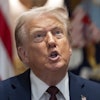SYDNEY (AP) -- Rio Tinto Ltd. said Tuesday it was still unaware of any evidence to justify China's detention of four employees for alleged spying, as the Australian government urged Beijing to speed up the case.
Rio, the world's third-largest mining company, issued a statement Tuesday welcoming news that detained Australian citizen Stern Hu had received a second visit by Australian consular officials since the four were detained more than five weeks earlier.
Sam Walsh, Rio Tinto's chief executive for iron ore, said in the statement the company remained surprised and concerned about the detentions, and had not been informed of any charges against the employees.
"We are still not aware of any evidence that would support their detention," Walsh said. "Rio Tinto is committed to high standards in business integrity and takes its ethical responsibilities very seriously."
Rio has been keeping mostly quiet about the case in public. Tuesday's statement was the third public comment made by the company. In the previous statement on July 17, Rio said it believed allegations of bribery against the workers were "wholly without foundation."
Chinese-born Hu, the manager of Rio Tinto's Chinese iron ore business, and three Chinese co-workers were detained July 5 as protracted talks on iron ore prices were under way with Chinese steel mills.
They have not been charged, and the few details of the case that are known have come from state-owned Chinese media, including accusations that Hu paid bribes to Chinese officials for information on China's negotiating stance in iron ore price talks
The reports said Hu's actions amounted to stealing state secrets, and executives of at least five major Chinese mills are being questioned.
The case has raised tensions between Beijing and Canberra, where the government is concerned that the case is moving too slowly and that Hu may not receive a fair trial.
Foreign Minister Stephen Smith said on Tuesday that Australian diplomats in China held their second meeting with Hu.
"We continue to urge the Chinese authorities to deal with their investigation expeditiously," Smith told Australian Broadcasting Corp. radio.
Australian officials were also asking Chinese officials to allow Hu to have a lawyer, something Smith said that in China was usually only allowed after charges were formally laid.
Smith also downplayed a weekend report posted on a Chinese state-run Web site that Rio Tinto conducted a six-year spying campaign against Chinese steel companies.
"I frankly thought it wasn't worthy of some of the salacious reporting we saw," Smith said. "It's now quite clear given that the article has been taken off the Web site, that it was essentially the opinion of the writer and not, if you like, officially sanctioned."
He said the accusations would have no bearing on Hu's case.
The report on a site run by China's Bureau of State Secrets claimed Rio Tinto used "used all possible means" to obtain secret information, including bribery and spying.
It said Chinese steel companies paid 700 billion yuan ($102 billion) more for imported iron ore than they would have. The report did not say how it calculated that figure, or cite specific evidence to back the allegations.
The Wall Street Journal on Monday quoted Chinese officials distancing themselves from the report, saying it did not necessarily represent the view of the administration.
Rio Tinto shares declined sharply for a second straight day, falling just over 1 percent Tuesday to Australian dollars 57.90, after sinking more than 3 percent on Monday.
CMC Markets dealer David Barrett-Lennard said the slump in Rio's price "is just reflecting that uncertainty in the near-term future."


















